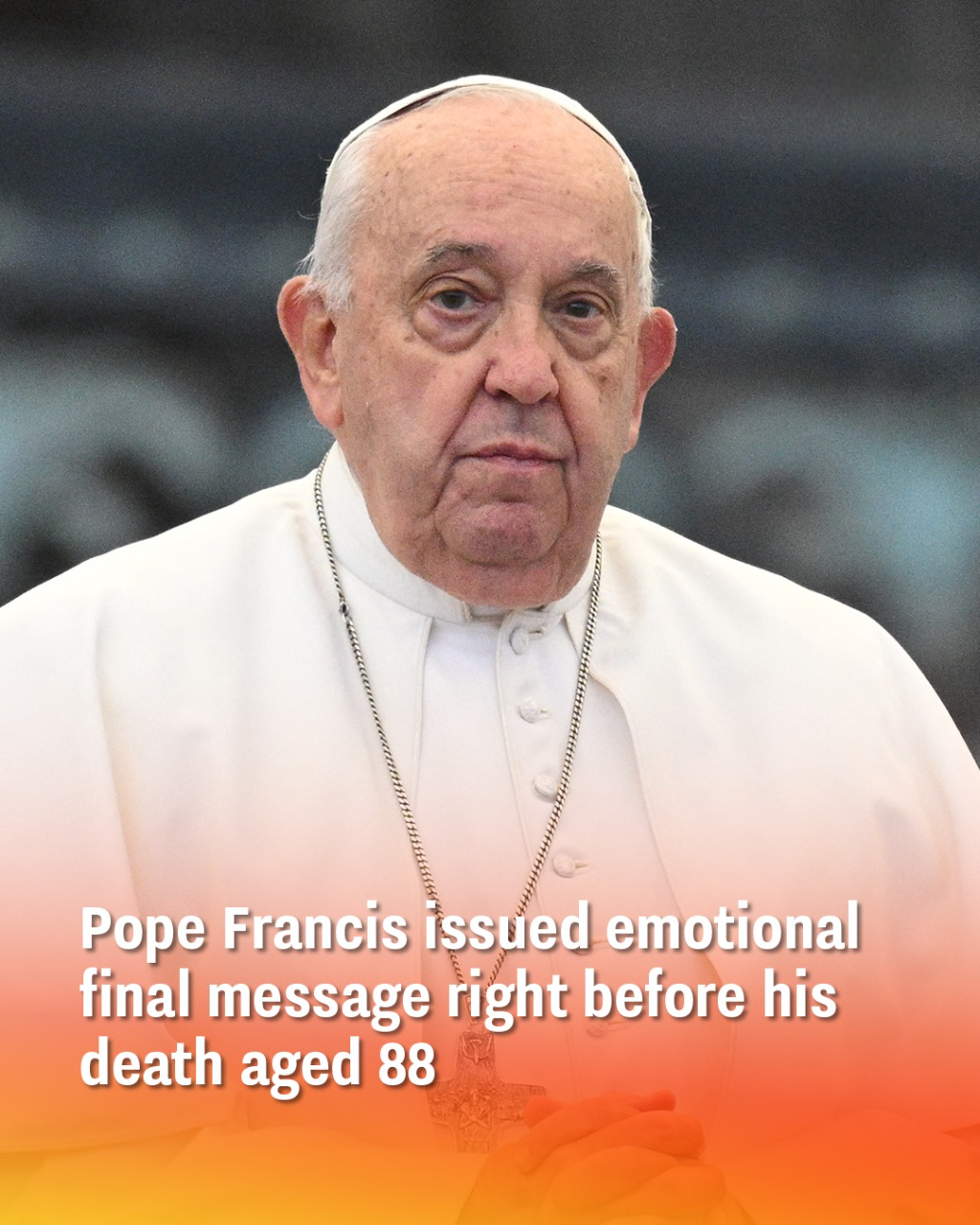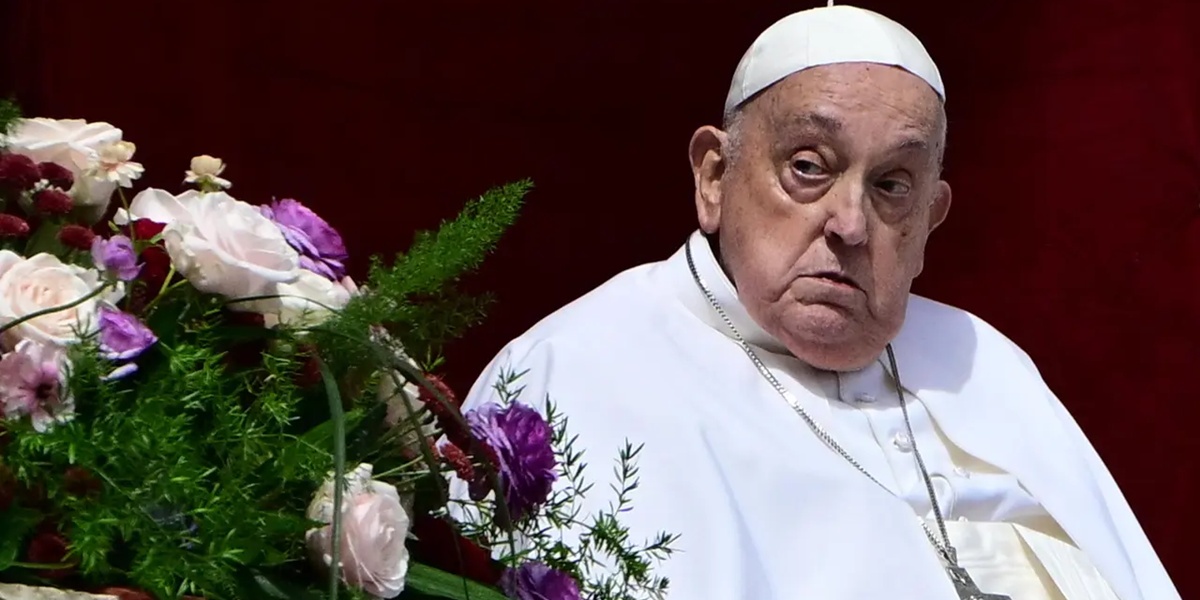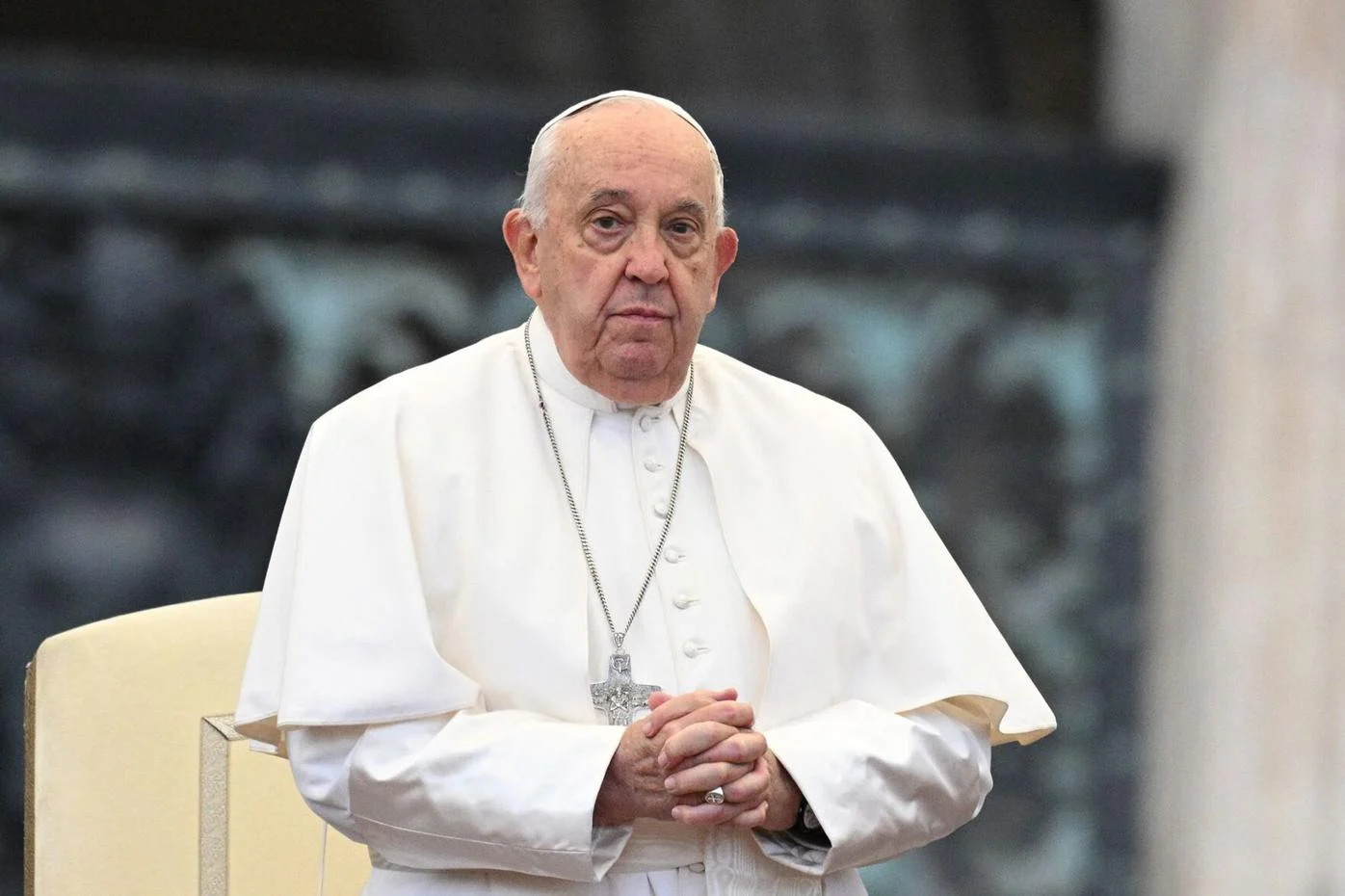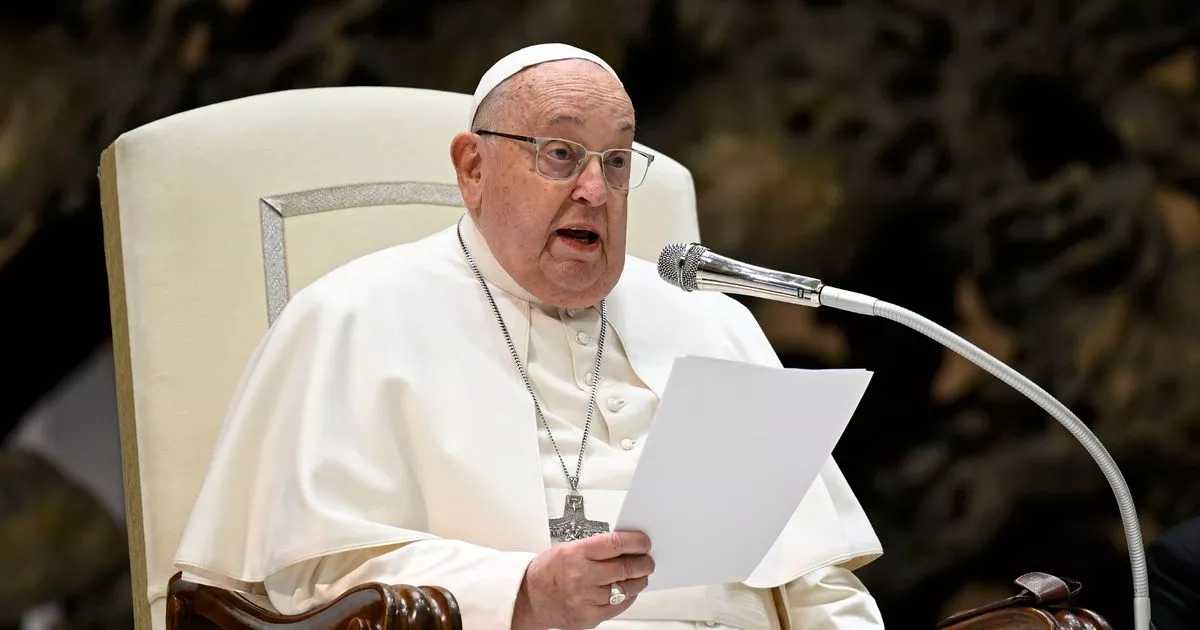
Pope Francis delivered a deeply emotional message the day before his passing (21 April) when he appeared to greet the crowds on Easter Sunday.
Earlier this morning (21 April), the Vatican confirmed that Pope Francis had died.
In a statement regarding his death, Cardinal Kevin Ferrell of the Vatican said: “At 7:35 this morning, the bishop of Rome, Francis, returned to the home of the Father.”

“His entire life was dedicated to the service of the Lord and of his church. He taught us to live the values of the Gospel with faithfulness, courage, and universal love, especially for the poorest and most marginalised.”
He ended by saying they “commend the soul of Pope Francis to the infinite, merciful love of God, One and Tribune.”
On Easter Sunday (20 April), the 88-year-old attended his last public appearance on the balcony of St Peter’s Basilica, where he gave the attendees a heartfelt speech.

His Easter Sunday message called for peace and a “respect for the views of others.”
An aide, reading on his behalf, stated: “There can be no peace without freedom of religion, freedom of thought, freedom of expression.”
He also spoke about the lives lost in Gaza, particularly highlighting the Christians there, and pointed out that the ongoing conflict “causes death and destruction” and leads to a “deplorable humanitarian situation.”
He remarked: “What a great thirst for death, for killing we see in the many conflicts raging in different parts of the world.”
Pope Francis expressed his sympathy for “all the Israeli people and the Palestinian people” and once again called for a ceasefire.

He said: “Call a ceasefire, release the hostages and come to the aid of a starving people that aspires to a future of peace.”
In addition to addressing the Israeli-Palestinian conflict, he also spoke about the war between Russia and Ukraine, urging all parties involved to “pursue efforts aimed at achieving a just and lasting peace.”
Before his death, Pope Francis had been hospitalized due to a respiratory crisis, which later resulted in double pneumonia, according to The Independent.
He spent 38 days at Rome’s Gemelli Hospital, where he was diagnosed with bronchitis and kidney problems.
Following his passing, several prominent figures, including King Charles III, have paid their respects to the religious leader.
In the wake of the Pope’s death, a nine-day mourning period will begin, after which a new Pope will be chosen through the traditional ‘papal conclave’ process.
The Catholic Church’s senior leaders, known as the College of Cardinals, will wait 15 days before starting the voting process to elect the next Pope.
At present, there are 252 Catholic cardinals, 138 of whom are eligible to cast their vote for the new Pope.



